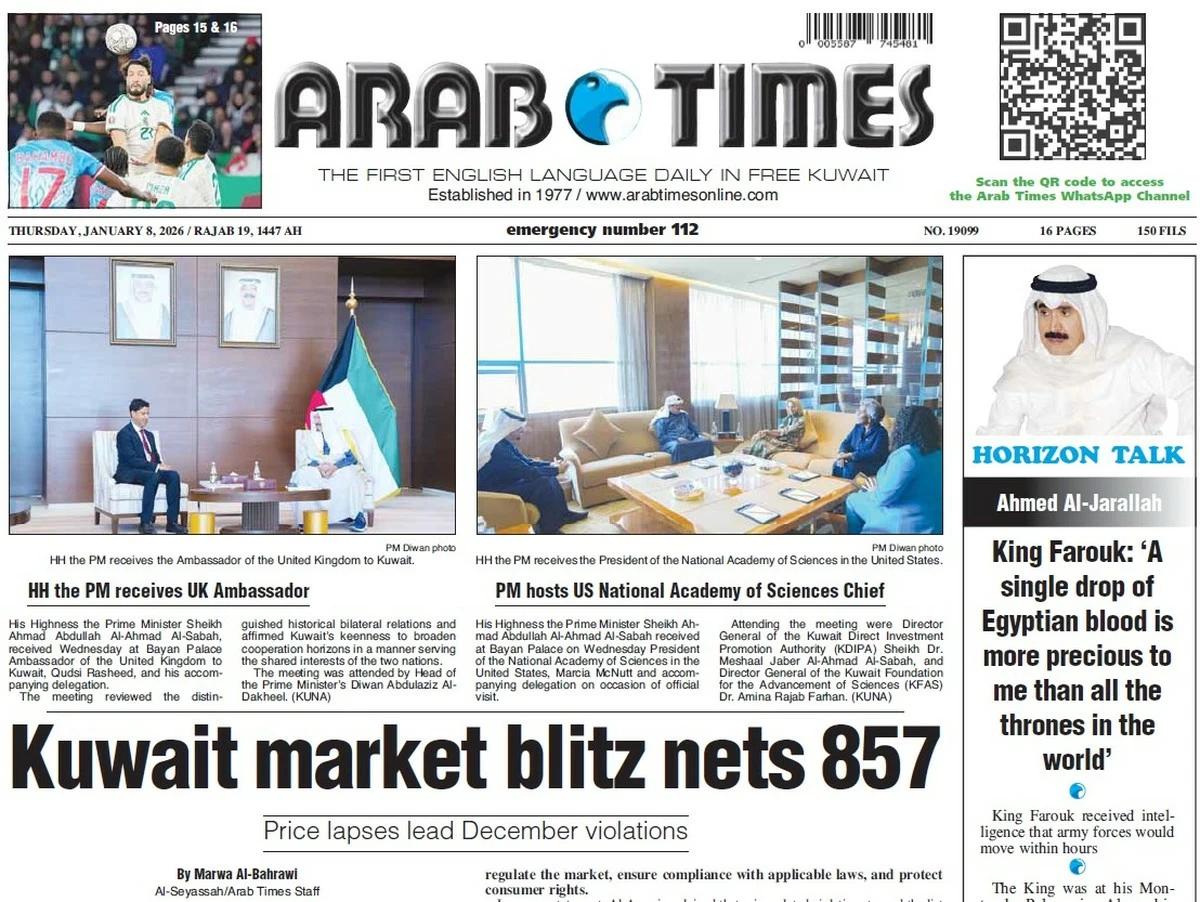14/10/2024
14/10/2024

KUWAIT CITY, Oct 14: Despite significant increases in inflation rates across various countries worldwide, which have reached record levels burdening both populations and economies, Kuwait has managed to maintain a slowdown in domestic inflation. This is attributed to the robustness of its social safety net and government support. According to the recently released Annual Plan Monitoring Report (2023/2024) by the General Secretariat for Planning and Development, the local inflation growth rate for 2023 has slowed to about 3.6% alongside a decline in global inflation rates.
The report indicates that the Central Bank of Kuwait has implemented several monetary policies since 2019. The interest rate was recorded at 2.94% before decreasing to 1.79% in 2020 and 1.5% in 2021, then rising again in 2022 and 2023 to approximately 2.35% and 4.13%, respectively. The central bank made these decisions regarding local interest rates based on an analysis of the latest economic, monetary, and banking information and data, including general economic rates, inflation levels, and local liquidity indicators, which are deemed the most important determinants for adjusting interest rates.
In making its decision, various factors affecting the Consumer Price Index (CPI) were considered to identify and assess elements that exert pressure on prices, in addition to taking into account the nature of the Kuwaiti economy, which is open to the external world. Regarding the demand for goods and services, the report noted that 2019 saw an increase of 0.3%, while 2020 recorded a contraction of -3.4%. Subsequently, demand increased with clear growth rates estimated at around 6.8% and continued to rise in 2022 to about 8.5%.
In 2023, however, the growth rate of demand slowed to approximately 3.2%, while the supply level of goods and services was significantly affected by geopolitical events that led to a notable increase in production costs due to rising energy prices. Despite this, inflation maintained acceptable levels during financial years, amid relative stability of indicators for commodity groups affecting household living expenses, which in turn determine the community's consumer and service spending capacity.
Looking at inflation levels over the past 10 years, between 2014 and the end of July 2024, consumer price inflation recorded an annual average of 2.67%. The last four years saw a noticeable increase to 3.46%. This is attributed to inflationary pressures on consumer prices, which are largely imported due to the COVID-19 crisis and supply chain issues during the pandemic, along with subsequent wars and global inflation surging to record levels in 2022, followed by a continuous decline into the current year.
Regarding inflation rates over the past 20 years, figures indicate that the annual inflation rate averaged 3.55%. When excluding the exceptionally high inflation rate of 10.57% in 2008, the overall annual inflation rate drops to 3.18%, which is considered "acceptable" amid the global economic, financial, and geopolitical events and fluctuations witnessed during that period. This underscores the importance of supporting essential goods that positively affect consumers' living standards.
In this context, data from the Central Statistical Bureau on consumer price indices (inflation) in Kuwait for the first seven months of the current year indicates the beginning of a reduction in inflationary pressures in the country, with an average of 3.12% on a year-on-year adjusted monthly basis. According to the statistical data, inflation levels in Kuwait continued to decline, falling from 3.99% in 2022 to 3.64% last year.


